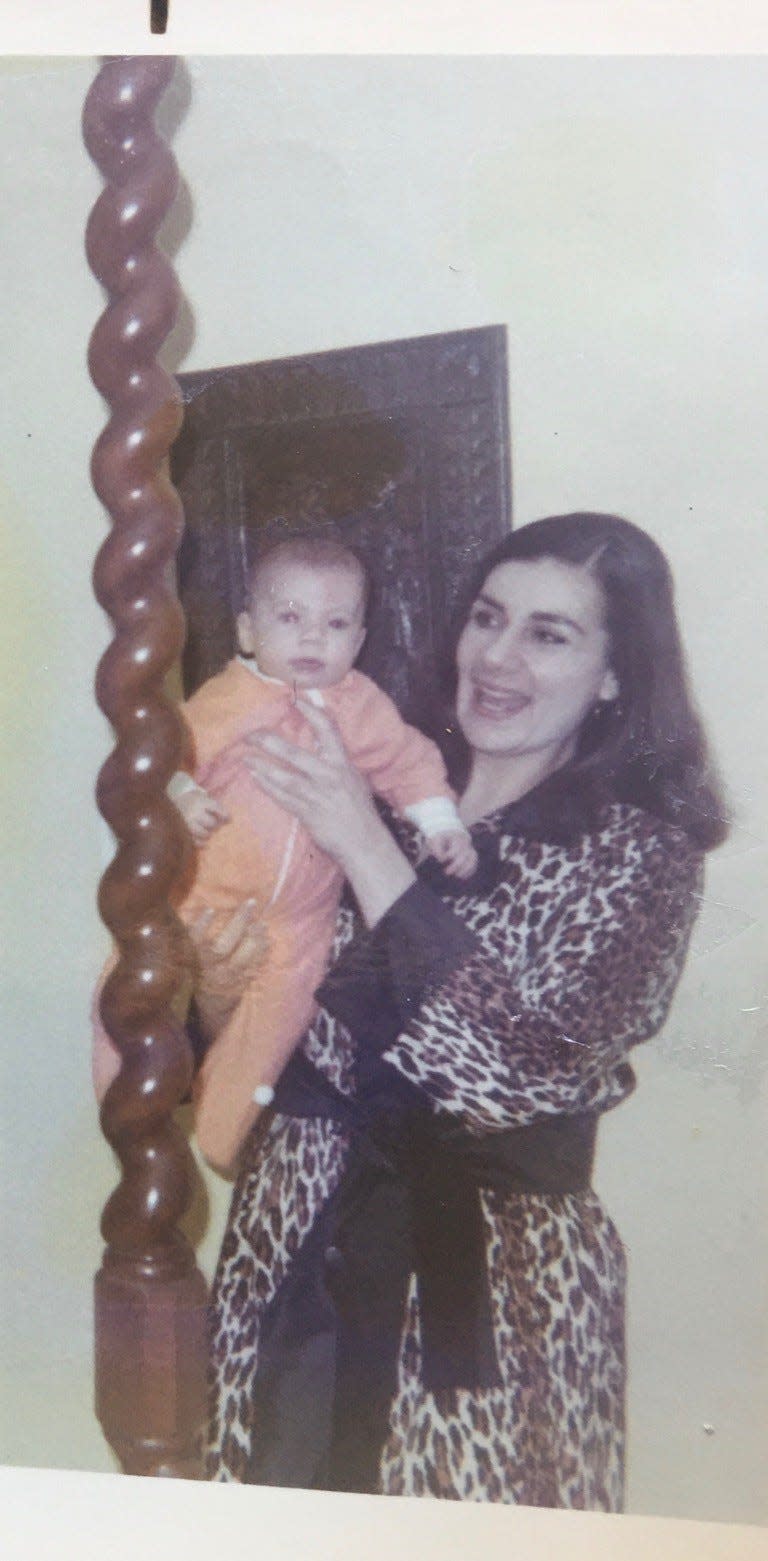Amid death, grief and COVID: Passing on my mother's gift of resiliency to my daughter
My high school teammates waved and headed to waiting cars after tennis practice. I craned my neck, looking for my mom’s metallic-blue Ford. In the 1980s, I was a rising sophomore, on the cusp of 15. At 5’ 11,” and left-handed, I had a passion for drop-shotting a 2-ounce yellow ball across a net.
It was not my mom who picked me up that day. My broad-shouldered dad arrived with red, tear-stained eyes. A quiet, complex man, with a penchant for ice hockey and ballroom dancing, he simply told me: It was mom. It wasn't good. I got in his car, the aroma of a cigar wafting through the air-conditioner.
My mom was grand. One of the first female copywriters at a Madison Avenue agency, she helped pave the way for other women, often serving as mentor. With funky, costume jewelry and berets, her personality matched her wild accessories. Around our kitchen table, she loved to regale my friends with stories of traveling the world. Her candor displayed how she spoke up for voices that needed to be heard. Volunteerism took form in helping teenage runaways, who were escaping horrifying situations, and she tried to prevent them from heading to more disturbing futures.
Change was forced on me
But, as grand and larger than life as she was, my mom suffered from a debilitating illness, childhood rheumatoid arthritis, that, by age 40, put plates in her body to fuse her spine, and forced her into a wheelchair. She had difficulty holding a pen to craft an advertising campaign, eat, or brush her hair. Eventually, she would spend her last years in a nursing home — her pain and suffering so vast.

I stored my tennis racket, and, worked part-time to help with household needs. Questions or comments about geometry, college applications, or the crush I had on a boy with shaggy brown hair, were discussed with peers or internalized.
Don't do it wrong: We’re in a race against COVID-19 variants. We'll lose it if we ease up on restrictions.
Change was forced upon me, especially developing the traits of independence and resiliency. I would tell mom I wished she could get better. She would say I had to adjust to the new way of being and find my own way. Later, I would pick up often, throw on a backpack, and retrace some of her travels, imagining what her life had been like when she could take long walks and laugh.
Going forward, not back to 'normal'
My 10-year-old daughter has spent more than 10% of her young life in a pandemic. During this time, she has read many books and shown a curiosity for travel. A budding artist, she is interested in anime, a style of illustration that originated in Japan. She has been studying Japanese culture and taking language lessons. She also knows how fortunate she is to have a roof over her head, food on the table, and Wi-Fi. She has exhibited great empathy as we have mourned the loss of loved ones to COVID-19 together.
Recently, she asked when she will be able to remove her mask and visit Japan. She said she longed for things to go back to B.C. — before COVID-19.
'China virus' redux: For Trump and Republicans, it's open season on Asian Americans like me
I thought long and hard, deciding to channel my mom’s voice, and not coddle my daughter. I told her that we are not going back to what once was her daily routine. We are going forward, and while there is uncertainty, we will each need to carve our own way. She stared at me for a moment and then wrapped her arms tightly around my neck. I kissed her forehead and told her a story about my mom, the grandma she never got to meet.
Whenever I look at the Prince Graphite oversize tennis racket I still have, I realize how far away I am from that melancholy, 15-year-old. Just as my mom helped me navigate uncertainty, build resiliency, and instill a level of independence, I’d like to restring my racket, volley a tennis ball with my daughter while promoting resiliency and work toward the next normal in our lives.
Jennifer S. Bankston heads Bankston Marketing Solutions, a business strategy and marketing firm.
You can read diverse opinions from our Board of Contributors and other writers on the Opinion front page, on Twitter @usatodayopinion and in our daily Opinion newsletter. To respond to a column, submit a comment to letters@usatoday.com.
This article originally appeared on USA TODAY: COVID: Encouraging children to get through change, rather than go back

